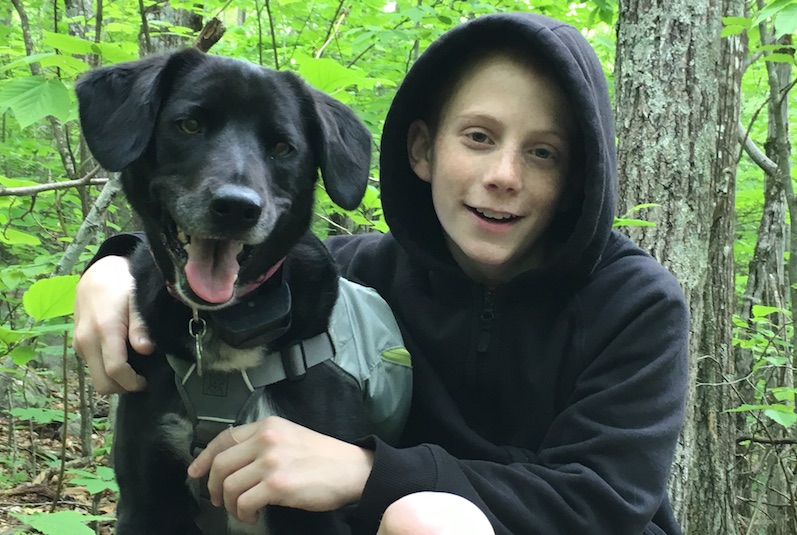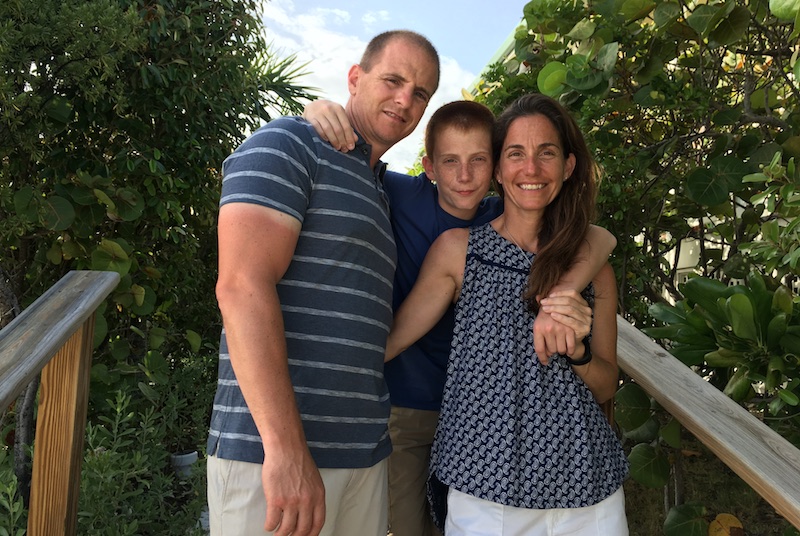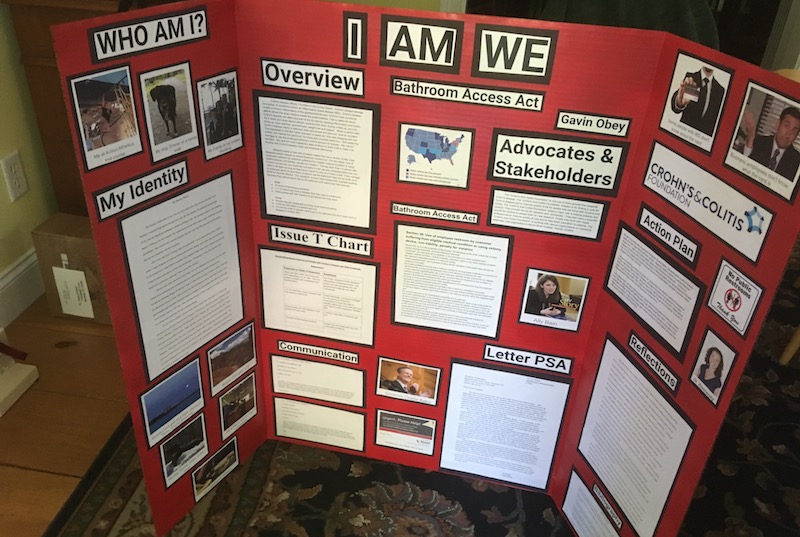Gavin: My Crohn’s disease story

When I was 10 years old, I was diagnosed with Crohn’s disease. For a few months at the end of fourth grade, I didn’t feel well on and off. I was having stomach pains and diarrhea a couple times a week. In June I went to see my doctor and she thought I was developing an allergy to dairy products.
My family and I went to the Bahamas for a boat trip and my symptoms increased to seven to nine times a day. When we got home, I went back to the doctor. They ran some tests and came to the conclusion that I was sensitive to gluten. I started eating gluten-free foods and my symptoms increased. I was having stomach pains and diarrhea up to 10 times a day, and ended up losing about 10 pounds in 10 days. I went back to my doctor and she sent me to Boston Children’s Hospital the next day.

My diagnosis of Crohn’s disease
The doctors at Boston Children’s did blood work and scheduled me for a colonoscopy and endoscopy. The tests determined that I have Crohn’s disease. Crohn’s disease affects 1.6 million people in the United States. It belongs to a group of conditions known as inflammatory bowel disease (IBD) and is a chronic inflammation of the gastrointestinal tract. Crohn’s most commonly affects where the large intestine meets the small intestine, but it can affect any part of the GI tract by causing inflammation and ulcers. As a result, your body cannot absorb nutrients from food. During a flare up, you can throw up and have diarrhea, stomach pain, weight loss, and fatigue.
My project on Ally’s Law
My eighth-grade social studies project was to contact the local or federal government and advocate for something that I believe in. With guidance from my gastroenterologist, Dr. Naamah Zitomersky, I chose Ally’s Law.
When Ally Bain was 14 years old, she was shopping with her mother and needed the bathroom, but there was no public bathroom. She asked the manager to use the employee bathroom and he denied her request. Ally had an accident. Ally and her mom helped the state of Illinois to write a bill to make it so anyone with Crohn’s disease could use employee bathrooms.

Massachusetts is now one of 16 states that have a version of Ally’s Law. Massachusetts’ version is named the Restroom Access Act. The law states, “Use of employee restroom by customer suffering from eligible medical condition or using ostomy device; non-liability; penalty for violation.”
The law says they if a person with Crohn’s, ulcerative colitis, or any similar condition comes into your business and asks to use your employee bathroom you need to let them as long as they have a doctor’s note or a Crohn’s card. I started my project by interviewing local small businesses about whether they knew about this law. What surprised me was that not only did most employees not know about this law, but also many either had some sort of IBD or knew someone who did.
I decided that not only did businesses need to know about this law, but also people with Crohn’s disease. I am currently working on making a pamphlet for people with IBD so they will also understand the law and be comfortable going out without worrying about needing access to a bathroom. My doctor in the Center for Inflammatory Bowel Disease has taught me that there are no limitations when living with Crohn’s, and I want others to feel that way as well.

About our blogger: Gavin attends Newburyport High School. He competes on a Ninja warrior team. After spending the summer training, he is starting a new season and recently qualified for the national finals in North Carolina.
Learn more about the Center for Inflammatory Bowel Disease.
Related Posts :
-

A journey through the intestine during colitis, cell by cell
Inflammatory bowel disease (IBD), causing devastating abdominal pain, persistent diarrhea, and rectal bleeding, is hard to control with current treatments. ...
-

Calm through the storm: Connor’s ulcerative colitis journey
When you meet Connor today, he’s a confident 13-year-old who is incredibly laid back when he speaks about his ...
-

From bench to bedside: A promising option for unremitting ulcerative colitis
Many existing treatments for inflammatory bowel disease, like Remicade® and Humira®, work by blocking inflammatory cytokines such as tumor necrosis ...
-

Shaping our intestinal microbiome: What makes certain microbes more ‘fit’?
We now know the microbes that live in our intestines — often called our microbiome — influence our health in many ways. ...




